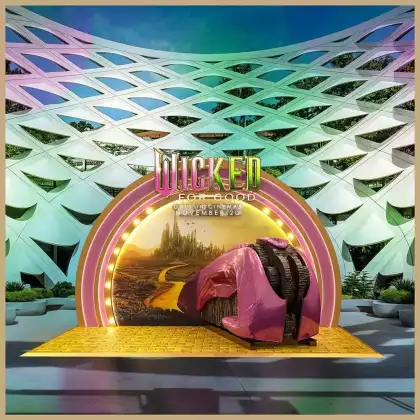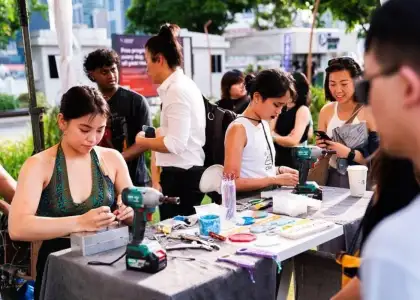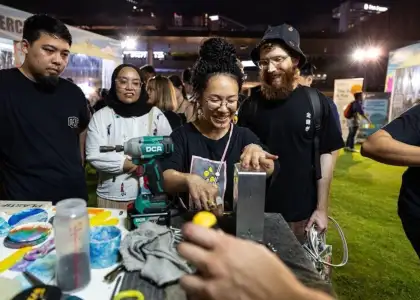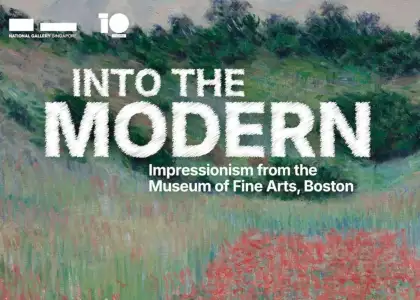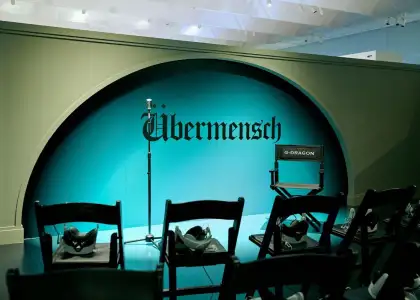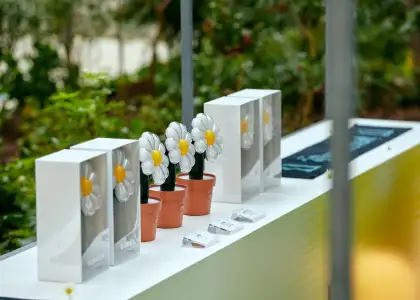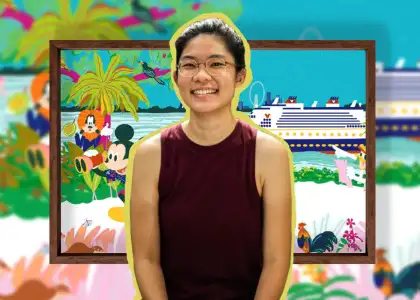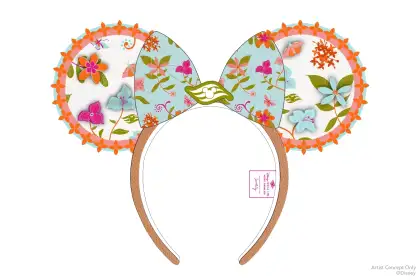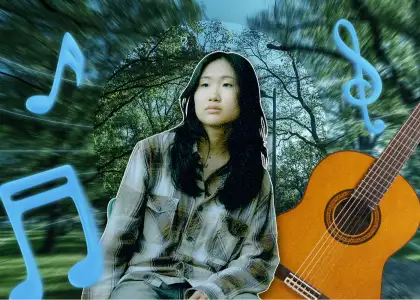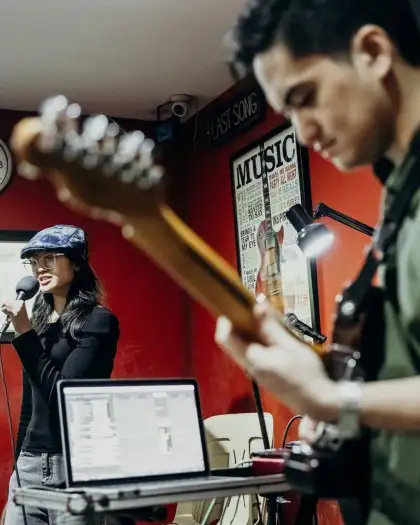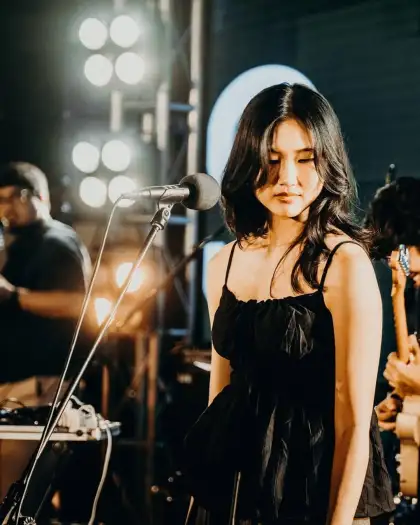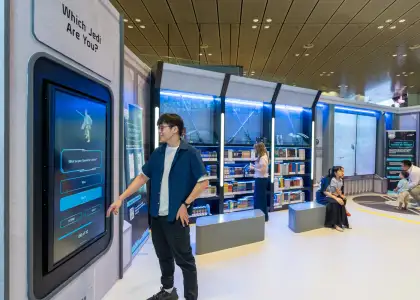Artist Spotlight: Mandeville Conservatory's Yap Shu Mei on Music's Power
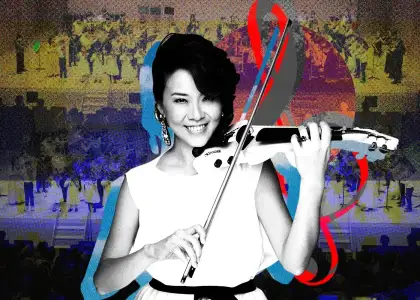
A world without music sounds unthinkable, and so is a world without those who teach it.
At the age of 13, Yap Shu Mei was already certain of what she wanted to do: pursue a career in music, medicine, or both, having been inspired by the polymath missionary doctor, Albert Schweitzer. Yet it was one crucial moment during biology laboratory class at the Raffles Junior College that cemented her desire to follow music. Watching her classmates viewing their microscopes, a question came to mind: while many of her peers wanted to become doctors, how many, perhaps, would want to teach violin?
This prompted Shu Mei to ask her violin teacher, Vivien Goh, an esteemed violinist and advocate of Singaporean music education, whether Singapore needed more violin teachers. Goh's resounding "Yes!" strengthened Shu Mei's resolve, and the former guided her to audition at the New England Conservatory of Music, one of the top music colleges in the United States, where she was eventually accepted.
The rest, some would say, is history. Shu Mei, who has since co-founded the Mandeville Conservatory of Music, seems to have come full circle from music student to music mentor. And yet she remains a student, still — of her own students, co-teachers, and of music itself. For almost 30 years, the Mandeville Conservatory's renowned music teachers have been educating Singapore's children and reaping achievements, led by Shu Mei and co-founder Ken Tan, a double bassist and her colleague from the Singapore Symphony Orchestra.
The Beat Asia recently spoke to Shu Mei to discover more about the work of Mandeville Conservatory of Music, from its passionate teachers and meaningful lessons to initiatives that give back to the community. Ultimately, she shared about the joys of teaching music and how music is a reminder of our collective humanity.
Hi, Yap Shu Mei! What's your earliest memory of playing the violin?
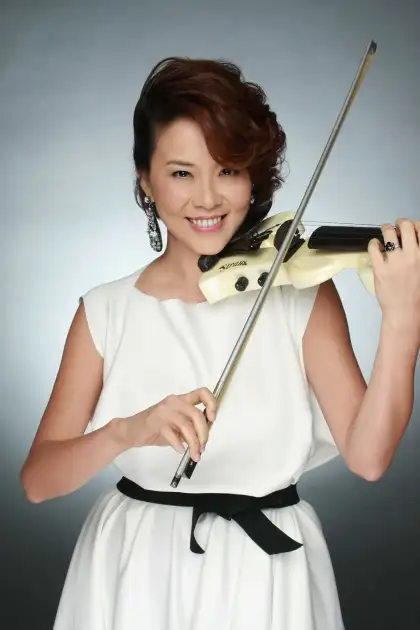
I grew up in Penang. When I was six, I had the opportunity to watch the musical “Fiddler on the Roof.” I was really drawn to the violin section of the orchestra. The bowing mechanics of the violinists fascinated me greatly. After that, I kept pretending to play the violin using whatever objects I could find to make a pretend violin and bow.
My eldest sister, who was a very good pianist, realised I had a good ear for music as I could always answer more quickly with the right answers when she was giving aural tests to my older sisters. So, she recommended [that I should] learn the violin with her piano teacher’s brother who was a famous violin teacher in Penang. I immediately took on to the instrument and after a few months, I had the opportunity to perform in an ensemble in that very same big hall where I saw the musical.
Playing the violin was easy for me as I was very keen [on] music, and I loved the singing quality of the instrument. I only had one line to focus on compared to lots of notes to handle at one time when playing the piano.
As the co-founder and director of Mandeville Conservatory, what inspired and compelled you and Mr. Ken Tan to co-establish your own music school?
We were both performing for the Singapore Symphony Orchestra. He is a double bassist, and I am a violinist. We were also private music teachers then. However, we wanted to do more for the local music education scene. Based on our overseas study experience, we wanted to create a wholesome music course to groom future musicians, music lovers, and supporters. We started Mandeville Music School with a music curriculum that included classes for toddlers to advanced music students, encompassing individual lessons, aural, music theory, and history classes, and playing diverse genres of music in smaller chamber groups and bigger ensemble groups from a very young age.
What would you say are the unique challenges and opportunities in music education in Singapore?
Challenges:
- Finding suitable and affordable places to operate a music school.
- Students [are] finding it hard to balance their time. They have many activities and a heavy academic workload, thus making it hard to find time for practice which is essential to the progress of learning musical instruments.
- Some parents’ mindset of learning music just for paper qualifications.
Opportunities:
- As society progresses, learning music for the advancement of human evolution is prevalent.
- A small country makes music-congregating activities more easily accessible.
- Collaboration and partnerships with educational institutions, industry professionals, [and] other community groups [are needed] to create more enriching music experiences.
- Embracing innovation and incorporating technology into the educational methods to better groom students.
How do Mandeville Conservatory and its music educators set themselves apart from other music schools in Singapore?
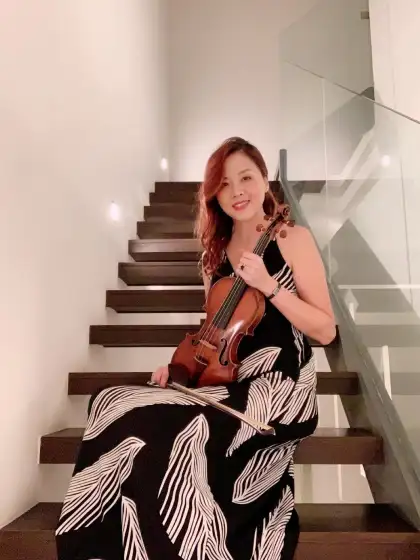
Mandeville is a premium school with an experience of 30 years. We conduct high quality wholesome lessons, which include ensemble performances and creative musicianship classes.
We have highly experienced and qualified teachers from Russia, Europe, USA, South America, Australia, Japan, Korea, Taiwan, China, Vietnam, Philippines, Malaysia & Singapore. Being professional performers, they are nurturing and teach with passion.
Our curriculum is comprehensive, covering all aspects of music, from solo, and chamber music [to] ensemble performances of various genres, music theory, history, [and] composition. We provide ample local and overseas performance opportunities for our students. Some of our past collaborations include trips to Vienna, Prague, Japan, Taiwan, HCMC [in Vietnam], Jakarta, [and] Malaysia. Mandeville’s students also perform for charity, community, and corporate events.
Mandeville students’ music exam results are exemplary. They have also won many prizes in local and international music competitions and festivals.
In your experience, how does music and the arts empower the youth to become more well-rounded, creative, and engaged members of society?
Music learning builds character in a child, developing them into confident, disciplined, resilient, logical, cultured, and creative youths. Music gives one the platform to express [oneself] freely, stabilising [one’s] temperament. Playing music with others develops social skills like empathy, cooperation, and leadership.
In an orchestra, everyone plays a different part. When you listen to individual parts, it may not sound good, but when played as [a] whole orchestra, it can be life-changing. So, learning music is so much more than just grades [and] exams. There is so much value and perspective to learn.
What are your philosophies in teaching and music, and how do you integrate these into the educational approach at Mandeville Conservatory?
We teach with love, and we nurture children to love music. When they are passionate about music, they will play music and support music for a lifetime. This is the best outcome for your investment in music education. Music brings people together. It helps to create a peaceful world.
What would you say are the greatest joys and most rewarding aspects of being a musician? What about of being a music teacher?
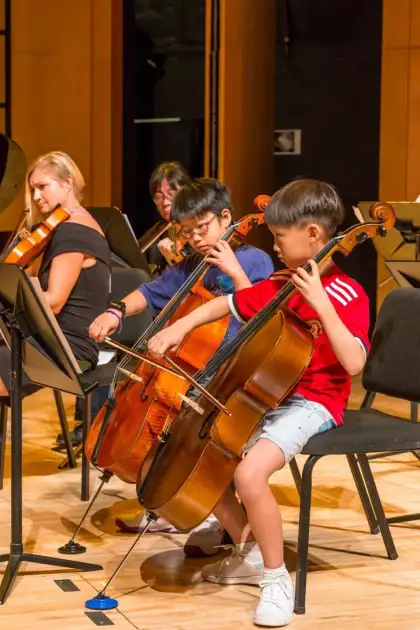
Music allows the musician to express their inner feelings and thoughts. Playing music is an avenue to release one’s emotions. It could make you happy or help alleviate one’s sadness or frustrations. When musicians are able to share their music and move their audience, it brings a euphoric satisfaction to their souls. Teaching music allows musicians to impart their knowledge and skills to others. When we see our students progress and start to enjoy performing as much as we do, we feel proud and accomplished. We start to make music together and some even become better and more accomplished musicians than us.
Looking back at your journey as a music educator, what valuable lessons have you gained thus far from your music students and co-teachers at Mandeville Conservatory?
I learned that all children have amazing abilities and potential, especially those who are two to six years old. Every child can be nurtured into a great musician if given the right instructions and environment.
With my co-teachers, everyone has his or her own personality and strength, and I got to let them teach and flourish in their own styles and methods. That’s how we achieve creativity and diversity [at] Mandeville Conservatory.
May you share more about Mandeville Conservatory's initiatives to give back to the community, especially to the underserved?
Since we started 30 years ago, we have always performed for charities. We have also helped collect our students’ old instruments to give to orphans and underprivileged children in the Philippines, Thailand, and Cambodia.
For the last two years, we [have] organised “Children for Children” concerts to raise funds for the Playeum Charity that helps underprivileged children build confidence.
Our performing groups like the Mandeville Violin Stars often perform for elderly centres, hospitals, and community events.
In the past years, we have performed for Singapore Children's Society, Assisi Hospice, Ren Ci, and Tan Tock Seng Hospitals, just to name a few. All these performances give our students’ learning a sense of purpose.
What are your initiatives and plans this 2024 to continue nurturing young musicians in Singapore and fostering their love for music?
We are organising the Singapore International String Conference again [on] Dec. 4 to 7 at the NUS Yong Siew Toh Conservatory of Music for violinists, violists, cellists, and double bassists.
Many internationally renowned performers and pedagogues will be joining us to inspire our participants aged 18 and below. With the most joyful, fun yet effective teaching methods, the participants will laugh their way into better and happier musicians! We continue to tailor individual learning to each student’s interest, pace, [and] strength to give them the flexibility to learn and excel.
“Music is the universal language of mankind.” Plato said “Music is a moral law. It gives soul to the universe, wings to the mind, flight to the imagination, and charm and gaiety to life and to everything.”
This interview has been edited for length and clarity. To learn more about the Mandeville Conservatory of Music, follow the school on Facebook and Instagram.
Get the latest curated content with The Beat Asia's newsletters. Sign up now for a weekly dose of the best stories, events, and deals delivered straight to your inbox. Don't miss out! Click here to subscribe.
















